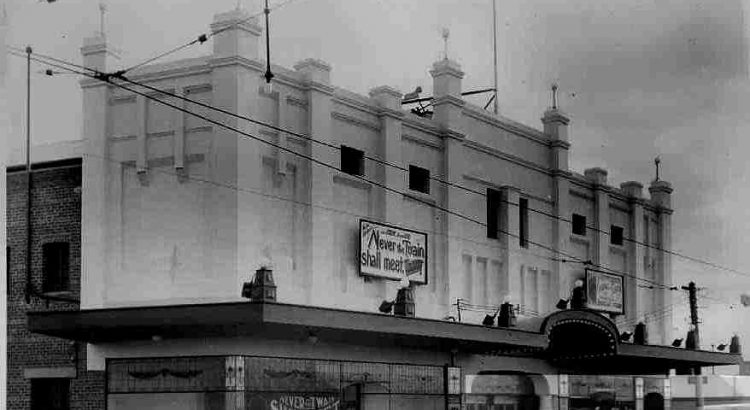The Gowerville Theatre at 175-77 Plenty Road just south of Bell Street opened on 5 June, 1926 to seemingly provide some competition for the Star on the corner of High and Gower streets; in reality, the backers were the same group that built the Star. The theatre at that time provided seating for around 970 patrons.
Like many theatres of the time, there were always a few gimmicks to attract patrons, the Edmonds brothers hitting on the idea of sponsoring awards for players from the Preston Football Club to be voted for by customers on the traditionally slow Monday night.
The final results for 1927 saw Danny Warr win the Star Theatre award with 2447 votes from Jack Watt with 2384 and Arthur Ludlow (one of Frank’s sons) a distant third.
For the somewhat less glamorous “fairest”, the Gowerville patrons went for Dave Holliday on 2715 votes, a clear winner from the 1926 “Recorder Cup”, now the J. J. Liston Trophy winner, “Bluey” Summers on 1863.
On these figures, the total number of votes cast at each theatre probably totalled around 8,000 to 9,000, undoubtedly a tidy box-office return for the modest cost of two trophies!
At the time, the Gowerville opened, it was described as “one of the most modern in the suburbs” and it was upgraded in May 1930 with the installation of “special talkie gear at immense expense”. On the programme was “Mickey the Mouse”.
The expenditure proved premature.
With the effects of the Great Depression biting hard in Preston, the Edmonds brothers decided that it was uneconomical to run both theatres and the Gowerville closed later in 1930, not re-opening until 3 December, 1938, just a week after the new Circle Theatre opened in High Street.
The operators by now were Messrs King, Guest and Luxton, who in the intervening years had opened the Rivoli Theatre in Gilbert Road (Walter Edmonds, the key figure in establishing the theatre died in 1934 at just 47 years of age).
The Gowerville Theatre closed again in 1949 and was extensively renovated, emerging in 1951 as the Melody, still under the control of King, Guest and Luxton. The capacity at that time is believed to have been around 1,250, the largest of any Preston cinema.
The advent of television in 1956 had the predictable impact, and perhaps because of its isolation from the main shopping hub, the Melody closed two or three years before the St. James (which survived a little longer probably because of its proximity to the popular rock ‘n roll dance venue at the Preston Town Hall) and was subsequently demolished for an office complex.
